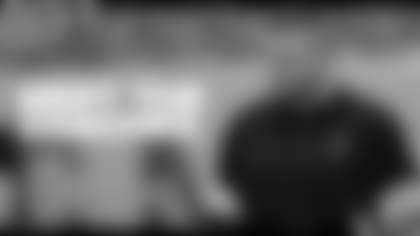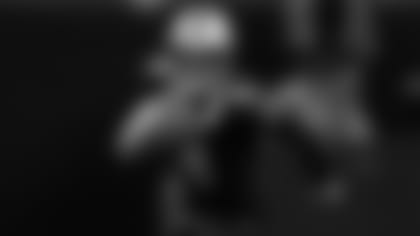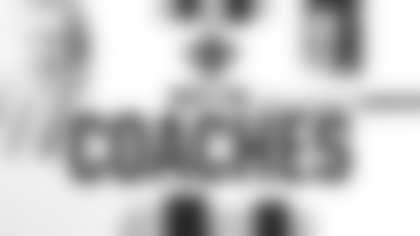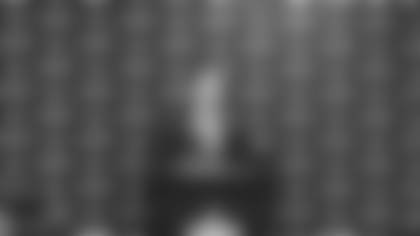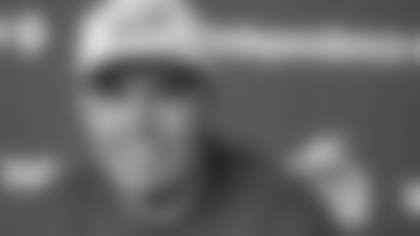The New Orleans Saints special team units are sprinkled with standouts, from two-time All-Pro J.T. Gray, a safety and punt team gunner with few peers, to Taysom Hill, a tight end who excels as a punt rusher, to linebacker Zack Baun, who brings a level of force on tackles that most cannot conjure, to kicker Wil Lutz and punter Blake Gillikin.
But Lutz (23 for 31 on field-goal attempts, the lowest percentage of his career, after missing 2021 while recovering from a core muscle injury) and Gillikin (41.4-yard net average, with seven touchbacks) weren't quite as consistent as the Saints were accustomed to seeing in '22. Each appears poised to bounce back this season.
Also, the Saints – and the NFL – will learn how the new kickoff rule affects that phase of the game. Special team coordinator Darren Rizzi was among the special team coaches in the league who vehemently were against the rule, which will allow the return team to have the ball placed at the 25-yard line on kickoffs if a fair catch is made inside the 25-yard line.
Rizzi spoke to senior writer John DeShazier about those topics entering training camp.
DeShazier: Last year's special teams, how do you feel they performed?
Rizzi: A little bit inconsistent. I thought there were games where we took advantage of it. We played with a of people last year. When you look at the 17 games, we had a lot of different guys playing on the bottom of the roster, so I think that certainly plays into the consistency part of it. When you can keep your core unit together for the whole year – the health of our team and the durability all that is going to be important every year. I thought there were some things we did really well. I think if you ask (kicker) Wil (Lutz) and (punter) Blake (Gillikin), they would tell you that they want to be better than they were a year ago. But I think there were some things that if you look back and you look at our stats, there were some areas that we were really excited about. And that's what this time of year is about, all the areas that we're trying to improve on.
DeShazier: You appear to have a real kicker competition. Is part of that Wil knows as much as anyone he deserves to have a competition until he shows he's back to the way he was?
Rizzi: I think Grupy (Blake Grupe ) is a really good player. Wil is a really good player. Wil and I sat down the day after the season and talked about everything. He knew coming in he was going to have (competition), whether it was a veteran or a rookie or whoever was going to be in here to compete with him.
DeShazier: What are your thoughts on the new kickoff rule?
Rizzi: I don't think there's a special teams coach in the league – in fact, I know there's not a special teams coach in the league right now – that likes the rule. I was part of this special teams committee that kind of did a deep dive into the play. Going back to 2018 when we changed all the kickoff rules, I was part of that committee as well. Back then when we studied the kickoff, all the things that we changed, there was tangible proof on film that they were causing injuries. For example, the back end wedge – it was clear that it was causing injuries. The running start by the kickoff team – it was clear that that was causing injuries. Some of the rules that we took out and implemented new rules – the setup zone, for example, with eight guys up, the no running start by the kickoff team – there was all tangible proof. What happened is the last two years, there was a slight uptick in concussions on the kickoff play. There was 19 this past year, the year before I think there was 14. And so, the NFL asked us to do this deep dive. So what this committee does in the offseason is, we study all the injuries. So we look at everything, we look at actually every special team injury. Not just head injuries, we look at all injuries. And so, we did a deep dive but specifically on the concussions on kickoff, you watch the 19 plays. And you go through them, and we're looking for that tangible proof, the tangible evidence that this rule change is going to help this concussion problem. And unanimously, the special teams coaches involved, any of the coaches that were involved, there's just no evidence on there that this rule is going to help with this issue. What the rule does is, the rule helps the returner, naturally. Because he has the ability to protect himself by fair catching the ball. So the general fan, naturally you would think that the returner is the guy who is getting the concussions. And he's not. There was only one concussion last year sustained by a returner, and that wasn't even on a collision. So our thought process and our recommendation to the NFL was we didn't feel like – because the guys that were getting concussed are the tacklers, the blockers, the coverage players – and on the fair catch, what most people don't understand is you have to play the entire play. So it's not going to take the blocking and the covering out of it, because the play is not dead until the catch is complete. So if the returner drops the fair catch, the ball is still a live ball and either team can recover, and so it doesn't take the blocking and the coverage aspect out of it.
"You guys see the Iron Cross (kickoff returner extends each arm out to his side, parallel to the ground) all the time. And this is not in the rule book. This is more of a special teams coaches gentleman's agreement. This is not in the rule book, but you see it all the time. And this is kind of like, 'Hey, we're not going to return it.' And now, you can avoid the blocks and you don't have the collisions. In this circumstance, you're not going to get that. We put a lot of time and effort into it.
"The NFL is using the college data, and it's just not an apples to apples comparison. They're saying, 'We think the return rate is going to go down because in college the return rate is X.' That would be like me saying, 'The field goal percentage last year in college was 73 percent, which is what it was, so next year in the NFL (the percentage will be 73).' That's just not a (fair comparison). So I feel like the NFL felt like they had to at least look at the rule for a year. There wasn't really many players or coaches, if any, that were in favor of doing it. We have some different ideas that we threw around. I think the most important thing to take out of this whole thing is that we as the coaches, the most important thing is the health and safety of the players. And I think there was this false narrative being thrown around that the coaches didn't want it because there was going to be less returns. That's not the reason we didn't want it. The last thing any no coach wants to lose a player to injury. We've made a lot of adjustments to make this play safer. The No. 1 reason that these concussions are happening is because we have tacklers and blockers coming down and leading with their head. And so, we've got to do a better job as coaches teaching that, and we've got to do a better job officiating it and making sure we're calling it when a player is leading with his head. And I think that's how we can maybe diminish some of these concussions.
"Here's what's going to happen – it's going to turn into ugly football. You know, after a penalty you can kick off from the 50. So now we're kicking off from the 50. If I kick the ball in the air and they fair catch it, they get it at the 25 so you basically have rewarded the team that got penalized. So here's what's going to happen: Every kickoff from the 50, if you don't want a touchback, is going to be a squib kick. The other thing that's a big deal, the college rule is if you drop the fair catch you don't get to advance."



